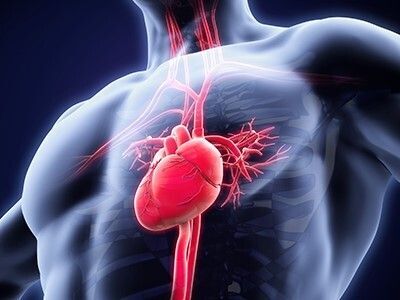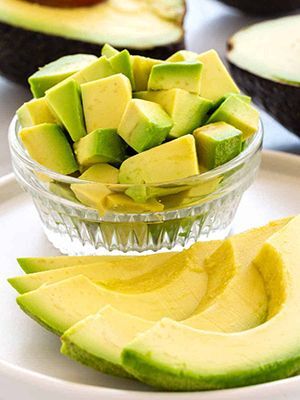Tending to the Heart
authored by Taylor Appel, Registered Herbalist (AHG)

The heart is truly a remarkable, multifaceted organ and energetic center. It is responsible for many energetic functions that optimize the health of the entire body, as well as the mind and spirit. As an essential part of the cardiovascular system, the heart factors significantly in our overall health and well-being. A key component in blood circulation, every chemical message sent by the other organs will undoubtedly travel through the heart. This means that when our heart is not functioning optimally, other organs in the body may also be affected. There are many ways the heart becomes unbalanced, from nutrient deficiencies to cardiovascular diseases. Emotional turmoil can also affect the heart's function.
Fortunately, there are many research-backed paths that lead to a healthy heart, including therapeutic lifestyle choices and diet, with a special focus on food as fuel for vitality. For example, a diet rich in various polyphenols and high amounts of anti-inflammatory foods optimizes heart health by giving the heart what it physically needs to thrive. We can also utilize specific herbs that are found to have supportive effects on cardiovascular health. In this month’s Healthy Living blog, we focus on holistic approaches to improve heart health, both physically and energetically.
Foods for Heart Health
When choosing foods that are heart healthy, look for a few key factors:

- red or purple in color (as these foods tend to be more blood nourishing)
- high in vitamins, minerals, and antioxidants
- good source of healthy fats (like omega-3s)
Make sure you also consume adequate fiber to support cardiovascular health. Try incorporating multiple servings of whole grains, fresh fruits, and vegetables into your daily food choices to help regulate healthy cholesterol levels and support the removal of any harmful toxins from the body. Fiber is truly essential for keeping everything moving regularly -- from the heart to the bowels.1
Other heart healthy food choices include:
- salmon (and other fatty fish)
- avocados
- tart cherries
Each of these foods are incredibly nutrient dense and directly promote cardiovascular health in unique ways.
Herbs for Heart Health
For thousands of years, herbal medicine has also been used to support cardiovascular health. The cardioprotective category of herbs is known to have beneficial effects on the heart and circulatory system. Herbs in this category help to strengthen the heart's ability to pump blood throughout the body and to and from each organ. Most contain plant compounds called polyphenols that can help dilate the blood vessels when needed, and can even help prevent unnecessary fluid build-up in other areas of the body, like the lungs, hands, and feet.1,2
Specific cardioprotective herbs have been identified to be therapeutic for numerous heart diseases, such as congestive heart failure and arrhythmias. As always, we recommend working with a healthcare practitioner that can assess and treat your unique health situation and effectively integrate some of these herbs into your heart health protocol.
Cardioprotective Botanical Allies:
Hawthorne (Crataegus monogyna)
Hawthorne leaf and berry is considered one of the best cardiovascular botanicals, due to their rich polyphenol profile, high antioxidant levels, and numerous therapeutic constituents. Hawthorne has been used safely in long-term applications to reduce the risk of severe complications for those with chronic heart disease.
Hawthorne also contains many nutrients like vitamin C and fruit anthocyanins, as well as numerous flavonoids that help optimize blood vessels and capillary function. This heart-healthy herbal medicine is indicated to support those with hypertension, varicose veins, and other cardiac insufficiencies.2 Hawthorn berries make a delicious tea and are popularly used in dessert recipes around the world.

Motherwort (Leonurus cardiaca)
In Traditional Chinese Medicine, or TCM, Motherwort is used as a tonic to nourish the heart and blood, and calm the spirit. It is said to transform stagnant pain into relief and help facilitate emotional release. Motherwort has also traditionally been used to aid mothers during birth, especially those that have gone past their due date. More recently, Motherwort has been highlighted as a useful tool in combating nervous system disorders that affect heart health or function. For example, anxiety, heart palpitations, and restlessness have all been found to be positively supported by regular Motherwort use. Research substantiates its use as a tonic supporting those with menstrual irregularities.2 Overall, Motherwort is an effective herbal medicine to nourish the blood, and help move both physical and energetic stagnancies.
Passionflower (Passiflora incarnata)
Similar to Motherwort, Passionflower has also been used in TCM as a tonic to nourish the heart and blood, as well as help to calm the spirit. Native American medicine also highlights the use of Passionflower as a food source as well as an herbal medicine that soothes the nervous system and sedates the body for more rejuvenating sleep. Research has highlighted numerous constituents that contribute to its therapeutic properties and ability to treat insomnia, anxiety, and both muscle and nervous system tension. Passionflower has become increasingly popular for its use in aiding those with overactive nervous systems, chronic headaches, and irregular sleep patterns.3 Passionflower leaves and flowers can be brewed and enjoyed as an herbal tea to help relax the mind, body, and spirit, while also nourishing the heart.
Tend to Your Heart
Most of us know that healthy food choices and a regular exercise routine support heart health. However, creating moments that fill us with positive emotions, reduce our stress levels, and ground us back into our bodies can also restore health to the heart. The practices described below are designed to help you tend to your heart, so you can invigorate your spirit, replenish your energy stores, and experience greater vitality.
Keep a Gratitude Journal
It’s easy to get wrapped up in the daily grind without stepping back to find something to be grateful for. Try ending your day with a moment of reflective journaling where you focus on the positive aspects of your life, appreciate something about yourself, or list three things you’re grateful for. This simple practice helps to evoke positive emotions, which can be the perfect accompaniment to any heart health protocol.

Practice Forgiveness
While not always easy, finding space in our hearts to offer forgiveness and gracefully let go of a painful situation can be a healing practice to the heart, as well as the spirit. Forgiving doesn’t mean that you condone what happened or that the person who caused you harm is blameless. It is instead making the conscious choice to release yourself from the burden, pain, and stress of holding on to resentment. Whether you vocalize this forgiveness or just tell yourself it is safe to forgive a certain situation, a person, or even yourself, the courageous act of practicing forgiveness can deeply nourish the heart, and therefore support heart health.
Positive Affirmations & Healing Mantras
Words are powerful -- they can evoke emotion, spark imagination, and can be a powerful tool and healing agent. Find a mantra that resonates with you, or an affirmation that fills you with joy and fills your senses with encouragement and positive energy. Even the simplest phrases can change your outlook instantly! This actively removes mental barriers, allowing space for new, positive emotions to manifest. There are remarkable studies highlighting the power of daily, positive affirmations as a therapeutic approach to reduce stress and other signs of inflammation. Specifically, one study highlights how self-affirmations were used post-cancer treatments to help combat cognitive impairment and support a higher quality of life.4
Prayer
Prayer does not have to be religious. Rather, it can be a practice of focusing on an energy or presence that is larger than ourselves, which is beneficial for mental and even physical well-being. For people who don’t feel like praying is for them, it helps to think of prayer as another form of mindfulness practice. Using prayer as a time of reflection and meditation can both relieve stress and calm the spirit. Try starting or ending your day with a short prayer or moment of silence and reflection as another way to tend to your heart.
Tending to the heart can take on many forms and have powerful, positive effects on our health outcomes. The heart is truly vital for our physical, emotional, and spiritual well-being. Understanding the heart's dynamic functions and supporting its needs with proper nourishment and emotional tenderness is key to creating lasting health. Whether it’s adapting a new stress reduction technique or exercise routine, or simply taking time each day to focus on gratitude and forgiveness, these therapeutic activities help us cultivate a healthy, functioning heart.
Join the Mederi Center community by signing up for our email list! We send several emails a month with product promotions for patients, practical tips for healthy living, blogs written by our practitioners, information about events, and other news. You can unsubscribe at any time.
References
- Kaluza J, Levitan EB, Michaëlsson K, Wolk A. Anti-inflammatory diet and risk of heart failure: two prospective cohort studies. Eur J Heart Fail. 2020;22(4):676-682. doi:10.1002/ejhf.1746
- Marciano, M., & Vizniak, N. A. (2015). In Evidence informed Botanical Medicine. essay, Professional Health Systems Inc. Accessed 1/29/2023.
- Miroddi M, Calapai G, Navarra M, Minciullo PL, Gangemi S. Passiflora incarnata L.: ethnopharmacology, clinical application, safety and evaluation of clinical trials. J Ethnopharmacol. 2013;150(3):791-804. doi:10.1016/j.jep.2013.09.047
- Taber JM, Klein WM, Ferrer RA, Kent EE, Harris PR. Optimism and Spontaneous Self-affirmation are Associated with Lower Likelihood of Cognitive Impairment and Greater Positive Affect among Cancer Survivors. Ann Behav Med. 2016;50(2):198-209. doi:10.1007/s12160-015-9745-9


